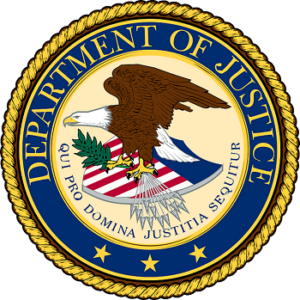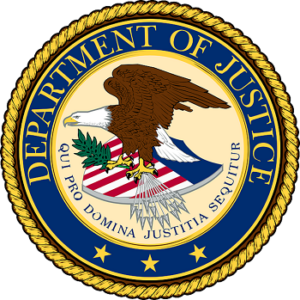
By the Constantine Cannon Whistleblower Team
Last week (May 19), the Department of Justice (DOJ) released a memo describing the details of its new Civil Rights Fraud Initiative, which will use the False Claims Act to push the Trump Administration’s DEI agenda.1 In announcing the initiative,2 Attorney General Pam Bondi made clear that enforcing Trump’s crusade against DEI is a top DOJ priority:
“Institutions that take federal money only to allow anti-Semitism and promote divisive DEI policies are putting their access to federal funds at risk. This Department of Justice will not tolerate these violations of civil rights – inaction is not an option.”
THE FALSE CLAIMS ACT WILL BE CENTRAL TO ENFORCING TRUMP’S ANTI-DEI CAMPAIGN
The False Claims Act was enacted by President Lincoln during the Civil War to go after war profiteers trying to defraud the Union Army with sawdust munitions and lame mules. Since then, it has become the Government’s primary fraud-fighting tool to go after those who engage in fraud or misconduct that causes financial harm to the Government or otherwise violates a fundamental Government program or policy.
Here, the Government is holding out Civil Rights as the fundamental policy at risk. According to the DOJ memo, the new Initiative takes aim at federal contractors or recipients of federal funds that “knowingly violate civil rights laws — including but not limited to Title IV, Title VI, and Title IX, of the Civil Rights Act of 1964 — and falsely certifies compliance with such laws.” DOJ identifies two specific constituencies it will be targeting with the Initiative:
-
- Universities. According to DOJ, “A university that accepts federal funds could violate the False Claims Act when it encourages antisemitism, refuses to protect Jewish students, allows men to intrude into women’s bathrooms, or requires women to compete against men in athletic competitions.”
-
- Government Contractors. DOJ similarly cautioned that the “False Claims Act is also implicated whenever federal-funding recipients or contractors certify compliance with civil rights laws while knowingly engaging in racist preferences, mandates, policies, programs, and activities, including through [DEI] programs that assign benefits or burdens on race, ethnicity, or national origin.”
In creating the Initiative, DOJ cites the Supreme Court’s 2023 decision in Students for Fair Admissions, Inc. v. President & Fellows of Harv. Coll., 600 U.S. 181, where the High Court struck down certain admissions practices at Harvard, finding them racially discriminatory. Apparently, the Trump Administration believes too many companies and schools are ignoring that decision and employing what DOJ describes as “racist policies and preferences — albeit camouflaged with cosmetic changes that disguise their discriminatory nature.”
According to the New York Times, DOJ is already off to the races with this new Initiative, adding the threat of False Claims Act enforcement to its ever-widening stream of attacks against Harvard.3 According to the Times, DOJ recently served Harvard with a 14-page demand for “a trove of documents and . . . written answers to a list of detailed questions” relating to Harvard’s DEI programs. DOJ apparently also wants to have a school official testify under oath about the school’s admissions policies and how they may have changed since the Supreme Court’s 2023 ruling.
DOJ IS CALLING OUT FOR WHISTLEBLOWERS TO HELP
The DOJ does not plan to act alone in using the False Claims Act to enforce the Trump Administration’s anti-DEI campaign. It is actively seeking the help of whistleblowers to bring violators to light through the qui tam provisions of the statute. One of the notable features of the False Claims Act is that it authorizes private persons to bring actions on the Government’s behalf and if successful, receive up to 30% of any Government recovery. The vast majority of False Claims Act lawsuits are brought by whistleblowers under these provisions.
DOJ made a point in both its press release and memo of stressing its call for whistleblowers to come forward with potential DEI violations and the promise of potential rewards if they do: “The Department recognizes that it alone cannot identify every instance of civil rights fraud. Congress likewise has recognized as much and, as a result, has authorized private parties to protect the public interest by filing lawsuits and litigating claims under the False Claims Act and, if successful, sharing in any monetary recovery. The Department strongly encourages these lawsuits.”
POTENTIAL CHALLENGES TO DOJ’S DEI ENFORCEMENT PLAN
Constantine Cannon whistleblower partner Gordon Schnell sees several potential challenges the Government will face in bringing DEI-based False Claims Act cases. Chief among them are proving intentional fraud and materiality, two of the key elements that must be satisfied in any False Claims Act case.
According to Schnell, “The Government would have to show a company or university intentionally engaged in DEI practices it knew violated the law and purposely concealed those violations from the Government, which is no easy task given the current legal landscape and uncertainties in this area.” Schnell added, “The Government also would have to show that any such violations were so significant they would have materially impacted the Government’s decision to contract with or fund the offending company or university in the first place.”
Separately, Schnell notes the Initiative “is another good example of the Trump Administration’s continued commitment to the False Claims Act as a key fraud enforcement tool.” Even more importantly, Schnell highlighted how, regardless of where you stand on the merits of the new Initiative, “it demonstrates the Administration’s continued recognition of the critical role whistleblowers play in helping the Government go after fraud and misconduct.”
CONSTANTINE CANNON REPRESENTS FALSE CLAIMS ACT WHISTLEBLOWERS
Constantine Cannon has substantial experience and success representing whistleblowers under the False Claims Act. If you would like to learn more about the statute and what it means to be a whistleblower, please do not hesitate to contact us. We will connect you with an experienced member of our whistleblower team for a free and confidential consultation.
Sources
1 See https://www.justice.gov/opa/pr/justice-department-establishes-civil-rights-fraud-initiative
2 See https://www.justice.gov/dag/media/1400826/dl
3 See https://www.nytimes.com/2025/05/15/us/politics/harvard-justice-dept-investigation.html.
Read DOJ to Use False Claims Act to Enforce DEI Crusade at constantinecannon.com






Leave A Comment